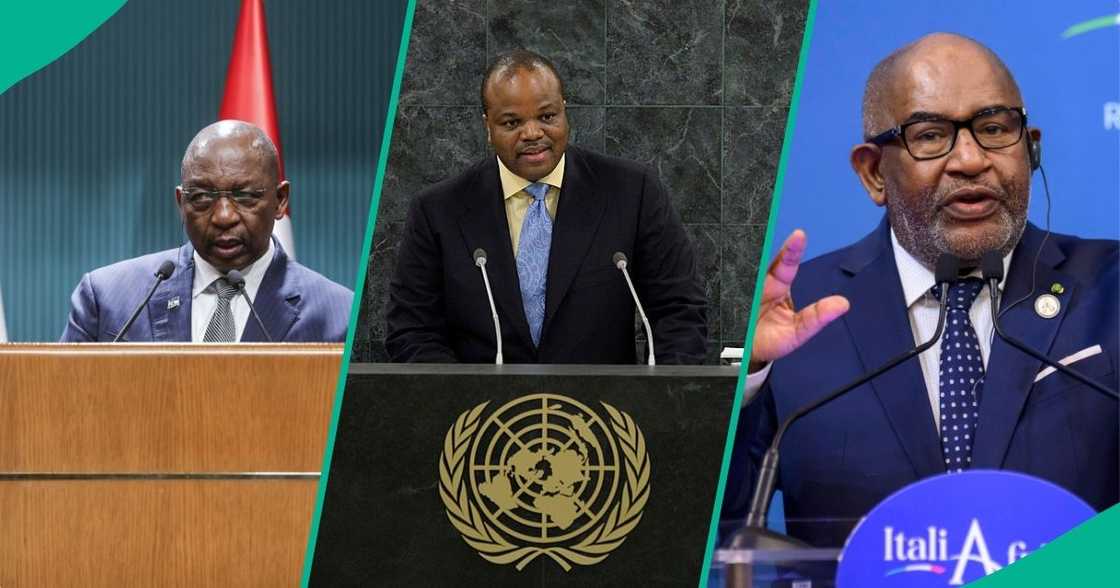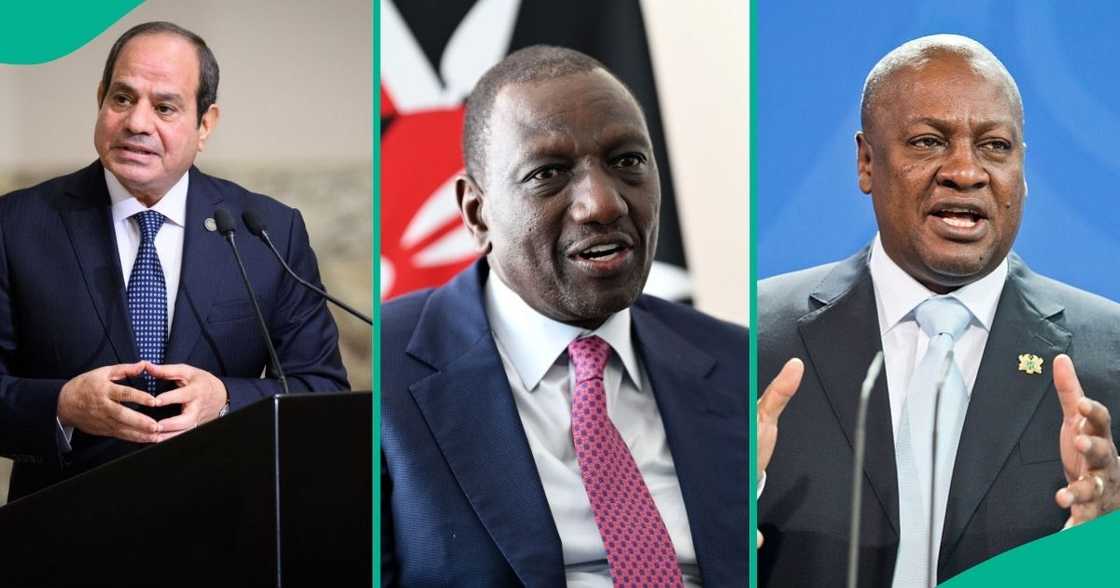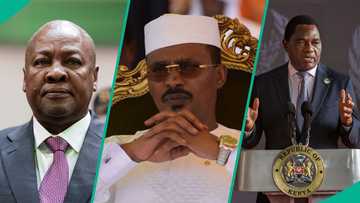“Lucky Ones”: 10 African Countries with Lowest Debt to IMF in March 2025
- The International Monetary Fund (IMF) has updated the list of African countries with low debt profiles
- The list shows that some African countries' debt exposure to the fund is very negligible, compared to others
- However, experts have cautioned that high exposure to the IMF level may lead to economic disaster for some countries
Legit.ng’s Pascal Oparada has reported on tech, energy, stocks, investment and the economy for over a decade.
Some countries shy away from borrowing from the International Monetary Fund (IMF) due to the conditionalities attached to its loans.
Compared to the World Bank Group, Nigeria’s debt to the IMF remains quite low due to the stringent conditions linked to borrowing from the fund.

Source: Getty Images
Why some African countries avoid IMF loans
While several African countries struggle with high debt burdens to the IMF, others have tried to manage their debt profile relatively effectively.
So many African countries face daunting economic challenges from high inflation, unemployment, high interest rates and slow development, leading to the need to maintain a low debt profile with the IMF.
According to experts, high IMF debt limits African countries' fiscal flexibility, undermines currency stability, and increases exposure to external shocks.
IMF loans come with tough conditions
However, countries with manageable IMF debt are better primed to promote long-term growth and economic resilience.
Analysts say IMF loans are like a double-edged sword for some African countries. While IMF loans offer financing during economic turmoil, they come with tough conditions, necessitating the implementation of austerity measures.
IMF loans come with attached reforms, meaning countries might remove subsidies, as in the case of Nigeria removing petroleum product subsidies in 2023.
However, the loans help countries navigate challenging economic climates, especially amid dwindling revenues and low tax rates.
Analysts believe that economies with steady debt levels are more likely to attract investors, while low debt shows sound economic and financial management, boosting economic expansion and investor confidence.
Four African countries on the verge of default
Legit.ng previously reported that some African countries were on the verge of debt default to the IMF due to structural challenges.
About four African countries are at risk of debt defaults as mounting debt burdens, increased interest rates, and dwindling revenue threaten national budgets.
These countries struggle to meet their debt obligations, leading to concerns about potential defaults and economic instability.
The push for debt relief
A lobby group, the African Forum and Network on Debt and Development (AFRODAD), which advocates for debt relief and addresses loan-related issues in Africa, released the affected countries to include Zambia, Ghana, Ethiopia, and Chad.
Jason Braganza, AFRODAD’s executive director, called for an overhaul of the global financial system to allow a UN-led mechanism to assist distressed countries.
Braganza stressed the urgency of reforming the global debt systems, particularly for African countries facing debt distress.
Data from the IMF website shows an updated list of African countries with low debt exposure to the fund.

Source: Getty Images
Business Insider reports that countries like Eswatini and Equatorial Guinea experienced a slight reduction in their debt profiles in March 2025.
African countries with low debt to IMF
- Lesotho: $110,660,000
- Eswatini: $19,625,000
- Comoros: $20,628,865
- Sao Tome & Principe: 27,602,011
- Djibouti: 31,800,000
- Guinea Bissau: 52,291,400
- Equatorial Guinea: 59,843,334
- Cabo Verde: 72,116,000
- Somalia:87,000,000
- Seychelles: 99,839,500
World Bank approves 2 new loans for Nigeria
Legit.ng earlier reported that the World Bank was set to approve new loans to Nigeria totalling $632 million on Monday, March 31, 2025, bringing the total of World Bank loans under Tinubu to $9.25 billion.
The loans are to support key areas such as nutrition improvement and quality basic education.
Data from the World Bank website on Sunday, March 30, 2025, shows that the two loans include $80 million for the Accelerating Nutrition Results in Nigeria 2.0 project and $552 million for the HOPE scheme.
PAY ATTENTION: Сheck out news that is picked exactly for YOU ➡️ find the “Recommended for you” block on the home page and enjoy!
Source: Legit.ng





